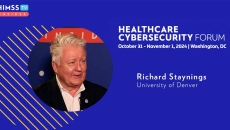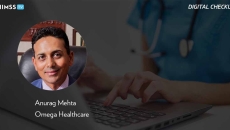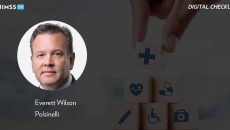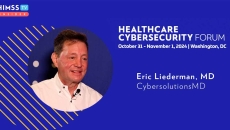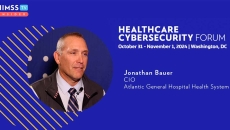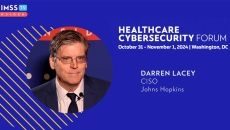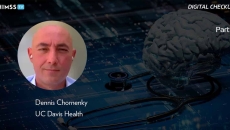Videos
Richard Staynings, a University of Denver professor, highlights the drawbacks and benefits of AI in patient care and precision medicine, advancing cybersecurity in healthcare, and malicious use of the technology to get past malware defenses.
Marjorie Rosen, HIMSS Chapter Advocacy vice chair, discusses unifying advocacy work between HIMSS chapters for health equity, providing mentorship for local community leaders and working directly with state legislatures to ensure neutrality.
Anurag Mehta, CEO and cofounder of Omega Healthcare, discusses the reasons for clinician and staff burnout and virtual nursing's role in easing providers’ duties, including responding to digital messages and completing EHR tasks.
Adam Hutchinson, oVRcome founder and CEO, discusses reducing phobias using VR exposure therapy, how the company fills the gap in VR psychiatric care access for providers and patients, and its trial on combatting social anxiety with VR.
We're facing an average of two data breaches a day across the country, says Greg Garcia, executive director of the Health Sector Coordinating Council Cybersecurity Working Group. Still, we have the tools to respond to and mitigate the damage.
Attorney Everett Wilson, managing partner at Polsinelli's Miami office, discusses overall changes in Medicare and Medicare Advantage - and how the recent benefits changes affect consumers, payers and plans.
Dr. Eric Lieberman, CEO of CybersolutionsMD, discusses advising care organizations on ensuring collaborative decision-making in cybersecurity for patient safety - and the government’s role in helping organizations protect their technologies.
Jonathan Bauer, CIO of Atlantic General Hospital Health System, discusses cybersecurity in smaller community hospitals and dealing with funding challenges and technological advancements, particularly following the Change Healthcare attack.
Using component pieces of LLMs and AI techniques to extract information can enrich data and analysis for cybersecurity, says Johns Hopkins CISO Darren Lacey. It’s time to start treating data primitives as one of our primary jobs.
To ensure proper AI use in healthcare, chief AI officers must be proactive, reach out to colleagues, develop valuable relationships and set up informational sessions, says Dennis Chornenky, UC Davis Health chief AI advisor.
